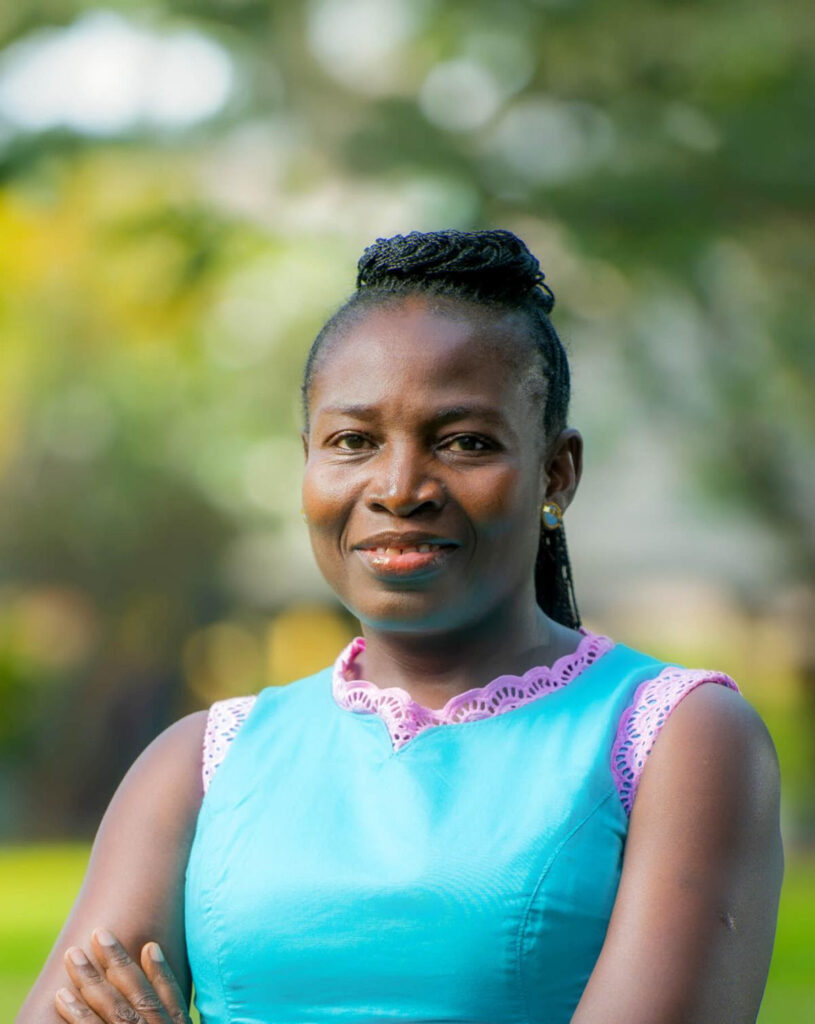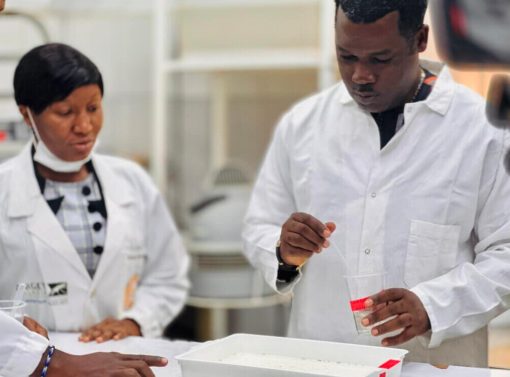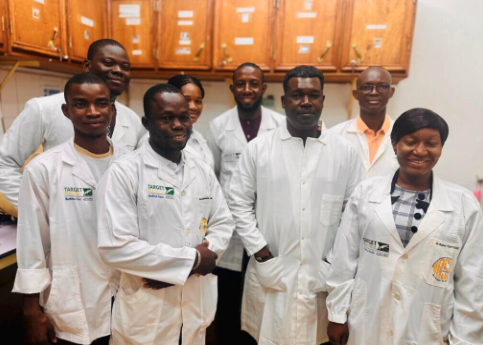World Mosquito Day 2025: Why investment in communities, researchers and innovation matters more than ever

OUAGADOUGOU, Burkina Faso, August 18, 2025 /African Media Agency (AMA)/ – As the world marks World Mosquito Day on August 20th, the calls for renewed investment in the people, partnerships and innovations needed to beat malaria – a disease that still claims over half a million African lives every year, and mostly young children – is louder than ever.
Target Malaria, a not-for-profit research consortium working in Africa to develop genetic technologies – such as gene drive (designed to reduce the population of malaria-transmitting mosquitoes) – has invested in the technology, training and development needed to heed the call to protect lives threatened by malaria in Africa.
With mounting pressures and challenges from climate change, insecticide resistance, and fragile health systems on the continent, governments and funders are urged to see genetic tools not as replacements, but as complementary innovations that can work alongside existing malaria interventions. But, these new solutions must go hand-in-hand with strong community engagement and scientific capacity-building.
“Every child lost to malaria is a failure of imagination and investment,” says Dr. Léa Paré Toé, Stakeholder Engagement Lead for Target Malaria Burkina Faso, at the Health Sciences Research Institute (IRSS). “On World Mosquito Day, we’re asking the world to invest not just in technology, but in the people and partnerships that will make it work.”
Investment in technology
How Target Malaria’s gene drive technology works: A genetic trait is introduced into the targeted Anopheles mosquito, one of the main carriers of the malaria parasite. This gene is passed down to offspring at a higher-than-normal rate, gradually reducing the population’s ability to reproduce. Over time, the mosquito population declines – potentially enough to interrupt malaria transmission altogether.
This technology is not designed to eradicate all mosquitoes – nor could it. Of more than 3,500 known mosquito species, only about 30 are a public health concern. Of those, just three or four are responsible for most malaria transmission in Africa. Target Malaria’s research is based on these.

Burkina Faso. Credit: Target Malaria
Investing in trust
“You can’t introduce scientific innovation without first investing in the trust of communities and the people who will carry this work forward,” says Dr. Paré Toé. “Our partnerships with local communities are foundational to our research – they are co-creators of this work, not just beneficiaries.”
In Burkina Faso and Uganda, the team has built long-term relationships with villages where research is taking place, ensuring residents are informed, consulted, and empowered to contribute to decisions.
To deepen community understanding of gene drive research, Target Malaria has invested in a suite of creative educational tools. These include interactive theatre performances in local languages, visual presentations, radio and broadcast programs. These tools are helping to build trust, transparency, and meaningful dialogue around the science, especially in communities directly involved in the research.
“This model of engagement is now seen as a blueprint for responsible research across the continent,” adds Dr. Paré Toé.
Investment in talent
In Burkina Faso and in Uganda, Target Malaria team members are actively involved in training a new generation of young African scientists to lead the fight against vector-borne diseases. From entomologists and molecular biologists to social scientists and ethicists, the not-for-profit is supporting local expertise and infrastructure to ensure African-led solutions to Africa’s health challenges.
In 2023, the project completed a new insectary and laboratory space on the premises of the University of Ghana, dedicated to the study the ecological effects of suppressing malaria mosquitoes. The Uganda Virus Institute (UVRI), where Target Malaria Uganda is based, was recently named the East African Community (EAC) Regional Centre of Excellence for Virology.
In addition to building infrastructure and partnerships, the team in Burkina Faso is playing a significant role in training future generations of African scientists. Researchers at the Health Sciences Research Institute (IRSS) supervise Master’s and PhD students, while the African Center of Excellence for Biotechnological Innovations for the Elimination of Vector-Borne Diseases (CEA/ITECH-MTV), led by Prof. Abdoulaye Diabaté in partnership with Nazi Boni University and others, provides hands-on training focused on innovative approaches to combat vector-borne diseases. Many students from across the continent – including Kenya, Benin, and Burkina Faso – also benefit from research exchanges with leading laboratories in Europe.
“Our goal is to equip a new generation of high-performing scientists to adapt emerging technologies to Africa’s development priorities,” says Dr. Paré Toé.
“Malaria won’t be solved alone, we need collective efforts to beat the disease. But, because malaria is an African problem, we’re building African scientific leadership, so the next breakthrough doesn’t just happen in Africa – it’s led by Africa.”

Credit: Target Malaria
Recently, Dr. Léa Paré Toé was elevated to the rank of Knight of the Academic Palms alongside the Principal Investigator of Target Malaria Burkina Faso, Prof. Abdoulaye Diabaté who was awarded the title of Knight of the International Order of Academic Palms by the CAMES, a Pan- African organisation promoting cooperation in the field of higher education and research.
Distributed by African Media Agency on behalf of Target Malaria.
Notes to editors:
To find out more about malaria transmitting mosquitoes visit Target Malaria’s educational series here and here.
About Target Malaria:
Target Malaria is a not-for-profit research consortium that aims to develop and share new, cost-effective and sustainable genetic technologies to modify mosquitoes and reduce malaria transmission. Our vision is to contribute to a world free of malaria. We aim to achieve excellence in all areas of our work, creating a path for responsible research and development of genetic technologies, such as gene drive. www.targetmalaria.org.
Target Malaria receives core funding by the Gates Foundation and Open Philanthropy. The lead grantee organisation is Imperial College London with partners in Africa, Europe and North America.

